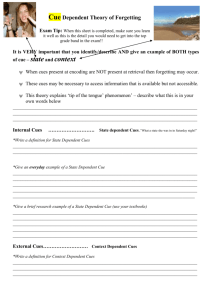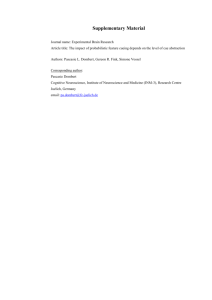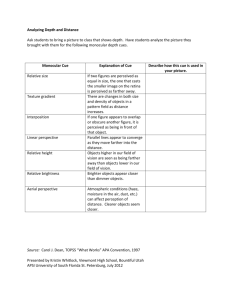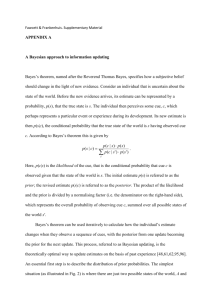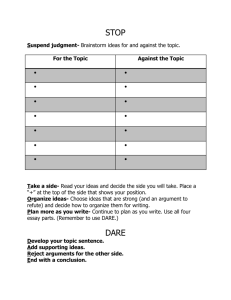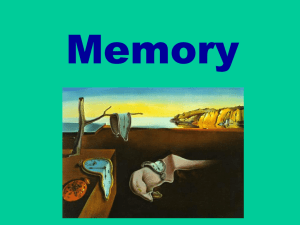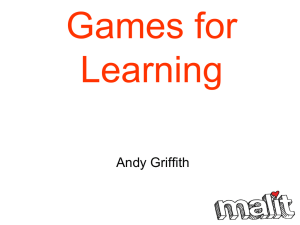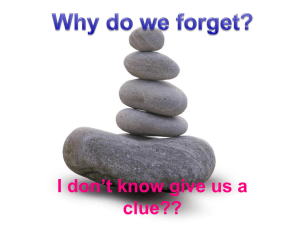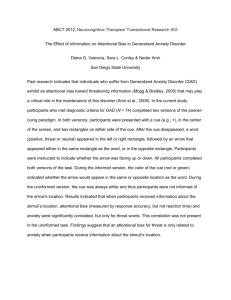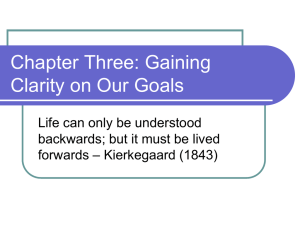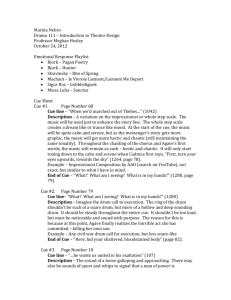The cue dependency theory of forgetting by Tulving essay question
advertisement
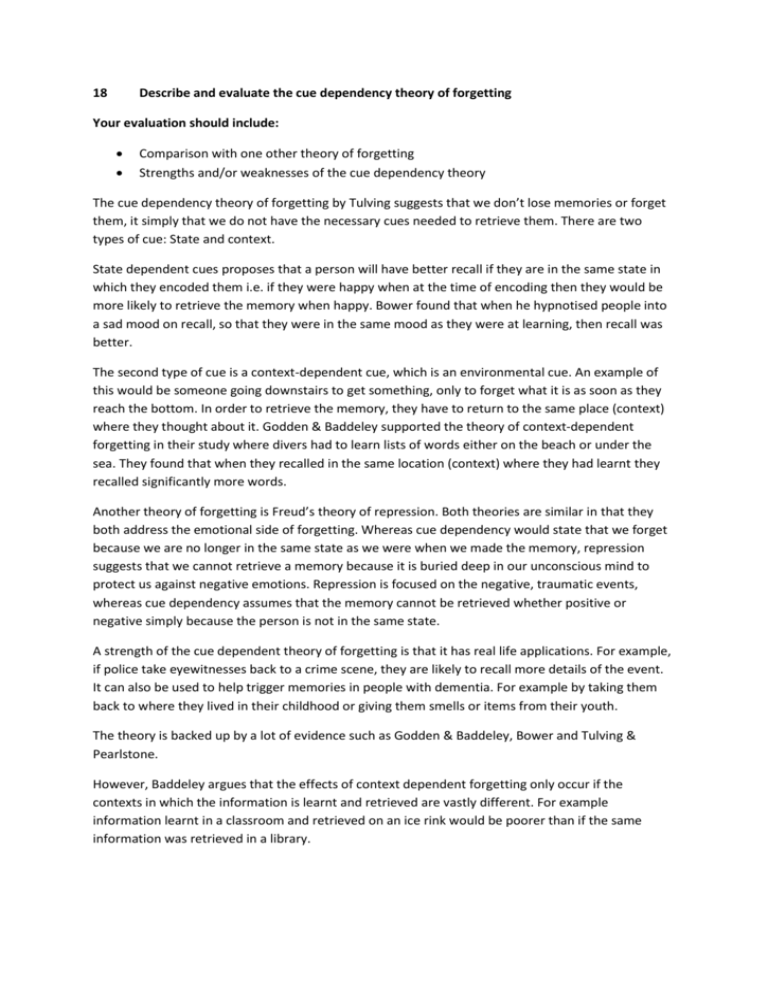
18 Describe and evaluate the cue dependency theory of forgetting Your evaluation should include: Comparison with one other theory of forgetting Strengths and/or weaknesses of the cue dependency theory The cue dependency theory of forgetting by Tulving suggests that we don’t lose memories or forget them, it simply that we do not have the necessary cues needed to retrieve them. There are two types of cue: State and context. State dependent cues proposes that a person will have better recall if they are in the same state in which they encoded them i.e. if they were happy when at the time of encoding then they would be more likely to retrieve the memory when happy. Bower found that when he hypnotised people into a sad mood on recall, so that they were in the same mood as they were at learning, then recall was better. The second type of cue is a context-dependent cue, which is an environmental cue. An example of this would be someone going downstairs to get something, only to forget what it is as soon as they reach the bottom. In order to retrieve the memory, they have to return to the same place (context) where they thought about it. Godden & Baddeley supported the theory of context-dependent forgetting in their study where divers had to learn lists of words either on the beach or under the sea. They found that when they recalled in the same location (context) where they had learnt they recalled significantly more words. Another theory of forgetting is Freud’s theory of repression. Both theories are similar in that they both address the emotional side of forgetting. Whereas cue dependency would state that we forget because we are no longer in the same state as we were when we made the memory, repression suggests that we cannot retrieve a memory because it is buried deep in our unconscious mind to protect us against negative emotions. Repression is focused on the negative, traumatic events, whereas cue dependency assumes that the memory cannot be retrieved whether positive or negative simply because the person is not in the same state. A strength of the cue dependent theory of forgetting is that it has real life applications. For example, if police take eyewitnesses back to a crime scene, they are likely to recall more details of the event. It can also be used to help trigger memories in people with dementia. For example by taking them back to where they lived in their childhood or giving them smells or items from their youth. The theory is backed up by a lot of evidence such as Godden & Baddeley, Bower and Tulving & Pearlstone. However, Baddeley argues that the effects of context dependent forgetting only occur if the contexts in which the information is learnt and retrieved are vastly different. For example information learnt in a classroom and retrieved on an ice rink would be poorer than if the same information was retrieved in a library.
